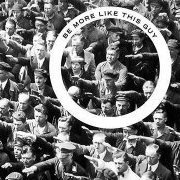Verden får et nytt land
90 stemmer
-
1. Er du positiv til løsrivelsen?
-
Ja55
-
Nei3
-
Bryr meg ikke32
-
- Vennligst logg inn eller registrer deg for å stemme i meningsmålingen.
-
Populær nå
-
- 21 305 svar
- 983 150 visninger
-
-
Hvem er aktive 0 medlemmer
- Ingen innloggede medlemmer aktive


Anbefalte innlegg
Opprett en konto eller logg inn for å kommentere
Du må være et medlem for å kunne skrive en kommentar
Opprett konto
Det er enkelt å melde seg inn for å starte en ny konto!
Start en kontoLogg inn
Har du allerede en konto? Logg inn her.
Logg inn nå